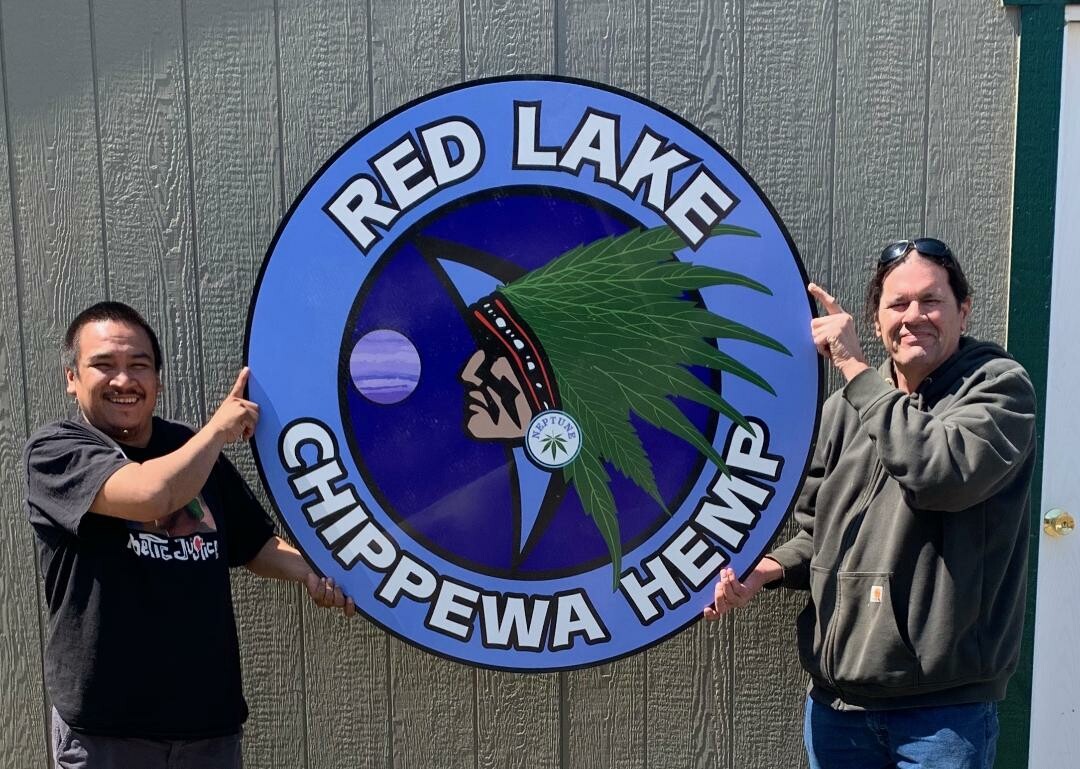News & Articles
Browse all content by date.

Just a couple days after the historic vote by the Red Lake Nation in favor of medical marijuana, the man who led the initiative to its successful conclusion was still euphoric about the 80 percent majority that supported the proposal. And, he promised, this is just a step toward full legalization on the reservation, and, he hopes for other tribes as well as the entire state of Minnesota.
“We’re celebrating together,” Jones told The Reader by telephone. “I hope this opens up the journey and a new path for Minnesota with the cannabis industry.”
The results in the May 20 vote to allow a medical marijuana operation on the reservation were 1,765 in favor and 425 against.
“It was a record day,” Jones said. “It was a nerve-wracking day for me, but I had a feeling it was going to pass because of the 2,500 signatures we collected.”
In order to put a resolution before the tribal council could bring it to a referendum, Jones and other supporters of medical marijuana had to obtain 2,500 signatures in support of the proposal. Jones said the effort to involve the tribe in the marijuana question was needed because the state once again left tribes out of the equation when it created its medical marijuana program.
“When Minnesota opened up the medical cannabis program, they didn’t include any tribes. That really caught my attention,” Jones said. “If Minnesota can make a program without including native tribes, we can make things here in Red Lake and start practicing our sovereignty.”
Jones believes the Red Lake Nation is ready to exercise their legal authority on this matter.
“We’re going to tell them what we’re going to do,” he said. “This is what we’re going to do, because they left us out so much. I’m tired of them taking a lot of what we had. Now they’re trying to take our sovereignty away. I won’t allow them to do that. I will fight for our sovereignty. I know the council will back us if we run this industry right.”
The initiative passed on May 20 veers from the rather restrictive Minnesota medical marijuana program in that it allows the marijuana flower to be used as a medical delivery method. Minnesota allows only manufactured oil and pill forms of medical cannabis.
“There were so many supporters for medical cannabis in flower form,” Jones said.
The Red Lake program also allows for more medical conditions than the Minnesota program allows.
“We added 20 more conditions than Minnesota has,” Jones said.
Jones said he takes his cue on using the Red Lake Nation’s sovereignty for medical marijuana from the Paiute tribe in Nevada that opened the first hemp lounge in Las Vegas when no one else could by invoking the sovereignty of the tribe.
“I started traveling all over,” Jones said. “I went to different reservations where it was legal and got in touch with the chairmen and the people who owned the dispensaries to see how they run things. I took their advice. I went to reservations in Nevada where it’s legal. Benny Tso of the Paiute tribe opened up the first dispensary in Las Vegas and he used that sovereignty. He showed me how to write up the laws. We didn’t have cannabis laws here in Red Lake. We didn’t even have hemp laws.”
And that’s really where the journey began for Jones and the group known as the Red Lake Legalization Team (they have a Facebook page).
“The only law they had here was for the Red Lake College to grow hemp,” Jones said.
“They left out band members to grow that. So the Red Lake Legalization Team, we created the hemp law. We applied for our hemp and cannabis licenses at the same time. We went to the tribal council meeting of July 2019 and asked for our licenses. That’s when we found out we didn’t have laws for anything we had going on. They issued the hemp license to me anyway.”
Jones was now ready to go into the legal hemp business, with 250 acres of land to grow the plant.
“A few months later, we ran into more problems,” Jones said. “We had to come to a stop because there were no laws for me to grow. I would have broke the tribal codes if I grew hemp.”
So Jones went back to the tribal council and said there need to be hemp laws on the books so he can start what he believes will be a very beneficial industry for Rd Lake members. He learned there was neither funding for nor manpower to write up the necessary laws to create a hemp industry.
“What I did and our team did, we put the cannabis and hemp laws together for our tribe, so we can eventually go to full recreational.”
Those laws had to go before the tribal code committee.
“I thought they were going to reject them,” Jones admits. “They liked them. Once the codes got approved by the Code members, we took it up to the tribal council and they approved the cannabis law.”
The next step was to have a tribal council member propose a resolution for the people to vote on medical marijuana. It was then put on the ballot during the May 20 election for four tribal council members.
“The council could make a decision themselves,” Jones said, “but I wanted it to be the people. I didn’t want it to be like the alcohol referendum we had here a few years ago to allow alcohol at the casinos for the customers, and that failed.”
Jones said as he campaigned for passage of the medical marijuana initiative, many people told him they wanted full recreational.
“We had to explain to them, one step at a time,” he said. “Medical was our first step. We campaigned hard for legalizing medical cannabis. We reached out to ever band member. We went house to house, before all this COVID-19 stuff. We went to pow wows. We made the parades. We just kept getting signatures.”
Jones even sees a day in the not-too-distant future when the 400-some people who voted against medical marijuana begin seeing how the new industry benefits the community.
“Those 450 people, they will benefit off this program, either way,” Jones said. “Even though they voted no, they’re still going to get a piece of the pie. We don’t view them as our enemy. We want this for all our people.
“There are companies up here that provide us revenue,” Jones continued. “I’m talking about our casino and the other programs that are here today, our Red Lake fisheries (sending walleye to the world). We don’t benefit off that right away. But with this new cannabis industry coming in Red Lake, the people will see something once we get fully operational. That’s what I want here in Red Lake. I worked so hard for this. I want this nation to come out of poverty, and this is how we do it. I want to practice our sovereignty. I encourage tribal members from any other nation that want to do this, do it, because they can. They have to have the power and belief in their people. The people are the ones who make this happen, now the power people who are running the council.”
Jones said his plan for a multi-million cannabis industry on the reservation is no pipe dream. It comes from his visits to other tribes that have gotten into the marijuana business, and his own recent experience growing hemp on 250 acres and selling natural hemp products and buds under the Red Lake Chippewa Hemp label.
“That’s something I started last year, and now today we’re doing all that,” Jones said of the Red Lake hemp store.
“Let us continue on our journey for our people. Full legalization, that’s our next step. I want to work hard and make this an industry that runs by the law. The cannabis industry has laws and they have to run by them That’s what we’ll do, run by the law. I don’t know what the tribal council’s going to do. I hope they go in the right direction and let us continue on our journey.”
| Tweet |


